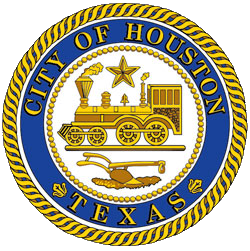
Houston Fire Chief Thomas Muñoz has been reappointed by Federal Emergency Management Agency (FEMA) Administrator Deanne Criswell to the FEMA National Advisory Council. Chief Muñoz was first appointed to the council in late 2023 while serving as the City’s Emergency Management Coordinator.
To align with his role as Fire Chief, Muñoz will similarly shift roles on the NAC from an Emergency Management Representative seat to an Emergency Response Provider seat. Justin Kates of Philadelphia was selected to fill the two years remaining in the term of the Emergency Management Representative seat vacated by Chief Muñoz. The full list of NAC appointees can be viewed here.
“Chief Munoz is a dedicated public servant and the best fire chief in the country. I am pleased that he has been reappointed to this critical FEMA advisory role. Houston and the nation will continue to benefit from his leadership, experience and expertise in emergency management and response and recovery,” said Mayor John Whitmire.
The National Advisory Council advises the FEMA administrator on all aspects of emergency management, including preparedness, response, recovery and mitigation for disasters and national emergencies. Council members represent a substantive cross-section of 40 geographically diverse officials, emergency managers and emergency response providers from state, local, tribal and territorial governments, the private sector and nongovernmental organizations. Since its creation in 2006, the council has provided hundreds of recommendations to FEMA on a variety of key emergency management topics.
“The National Advisory Council brings together a broad range of experts and critical partners to help us build the FEMA our nation needs and deserves,” said Administrator Criswell. “These new appointments, led by our new NAC Chair Donald Bliss, will provide our agency with valuable guidance and insight as we carry out our mission of helping people before, during and after disasters.”
“We will continue to provide valuable guidance and advice to the Administrator with innovative approaches that better serve disaster survivors in state, local, territorial and Tribal communities,” said Donald Bliss. “Our focus for 2025 is on strengthening consequence management, improving long-term risk reduction and addressing the challenges of technology, security and innovation in emergency management.”
